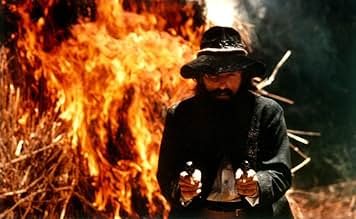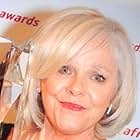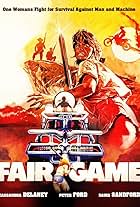IMDb RATING
7.6/10
4.8K
YOUR RATING
The story of the Australian exploitation genre cinema of 1970s and 80s.The story of the Australian exploitation genre cinema of 1970s and 80s.The story of the Australian exploitation genre cinema of 1970s and 80s.
- Awards
- 1 win & 2 nominations total
- Director
- Writer
- All cast & crew
- Production, box office & more at IMDbPro
Storyline
Did you know
- TriviaInterviewees include Jamie Lee Curtis, Dennis Hopper, George Lazenby, George Miller, Quentin Tarantino, Stacy Keach, Roger Ward, and Barry Humphries.
- GoofsAntony I. Ginnane proudly claims that he got the services of "Joseph Cotten, Academy Award winner!" for The Survivor (1981). Joseph Cotten was never even nominated for an Academy Award.
- Quotes
John D. Lamond: I'm told I treat women like a sex object, and I suppose it's true, cause I ask for sex and they object.
- ConnectionsEdited into Road Games: 'Not Quite Hollywood' Interviews (2008)
- SoundtracksShadow Boxer
Written by John Brewster, Doc Neeson, and Rick Brewster (as Richard Brewster)
Performed by The Angels
Courtesy of Albert Productions
Featured review
This is an excellent documentary on the "Oz-ploitation" films of the 1970's and 80's. It covers a number of genres from sexploitation comedies ("Alvin Purple") to horror ("Patrick", "Long Weekend") to Down-Under Westerns ("Mad Dog Morgan") to auto-obsessed action flicks ("Mad Max"). They interview many of the directors/producers of these films including Brian Trenchant-Smith, Richard Franklin, Tony Ginane, and John Le Monde. They also interview a number of the English and American "name" actors (Jamie Lee Curtis, Stacy Keach, Dennis Hopper, Steve Railsback, George Lazenby) that came to work in Australian exploitation during this time. They all have some funny stories to tell (a drug-addled Dennis Hopper managed to wreak havoc even in the hard-drinking Australian outback). They even interview many of the local Aussie stuntmen and T-and-A queens, who certainly made their own daring contributions to these films. Moreover though, there are A LOT of clips from these films, and they serve to make this documentary more fast-moving and entertaining than most of the movies it covers.
It's unfortunate that many of the important figures from that era have died, like actor/director David Hemmings, but even they show up in archival footage. It also might have been nice to hear from people like Jenny Agutter and Olivia Hussey, who both made some memorable films Down Under. The omnipresent Quentin Tarantino, on the hand, had nothing to do with Australian films, but he certainly is VERY knowledgeable about them.
The only disappointing thing about this is the short shrift it gives to the more arty Australian films of this era--"Walkabout" is represented only by a single full-frontal still of Jenny Agutter, and some of the interviewees refer disparagingly to films like "Picnic at Hanging Rock". It's understandable that some of these "exploitation hacks" would resent the more arty, "culturally important" Australian films that received most of the international recognition (and government support), but the line between exploitation and art is a lot less clear than it's made out to be sometimes. Peter Weir who directed art films like "Picnic" and "The Last Wave" also directed much more straight-forward 70's genre films like "The Cars that Ate Paris" and "The Plumber". And if you look at the career of someone like Canadian David Cronenberg, it's certainly possible in many countries to start out as a genre/exploitation director and become an arty, more mainstream one. These resentments were more the result perhaps of the Australian film financing policies of the era than of any real differences between the two kinds of film. Whatever the case, this definitely an entertaining documentary. Don't miss it.
It's unfortunate that many of the important figures from that era have died, like actor/director David Hemmings, but even they show up in archival footage. It also might have been nice to hear from people like Jenny Agutter and Olivia Hussey, who both made some memorable films Down Under. The omnipresent Quentin Tarantino, on the hand, had nothing to do with Australian films, but he certainly is VERY knowledgeable about them.
The only disappointing thing about this is the short shrift it gives to the more arty Australian films of this era--"Walkabout" is represented only by a single full-frontal still of Jenny Agutter, and some of the interviewees refer disparagingly to films like "Picnic at Hanging Rock". It's understandable that some of these "exploitation hacks" would resent the more arty, "culturally important" Australian films that received most of the international recognition (and government support), but the line between exploitation and art is a lot less clear than it's made out to be sometimes. Peter Weir who directed art films like "Picnic" and "The Last Wave" also directed much more straight-forward 70's genre films like "The Cars that Ate Paris" and "The Plumber". And if you look at the career of someone like Canadian David Cronenberg, it's certainly possible in many countries to start out as a genre/exploitation director and become an arty, more mainstream one. These resentments were more the result perhaps of the Australian film financing policies of the era than of any real differences between the two kinds of film. Whatever the case, this definitely an entertaining documentary. Don't miss it.
Details
- Release date
- Countries of origin
- Official site
- Language
- Also known as
- Не совсем Голливуд: Потрясающая, нераскрытая история австралийского эксплуатационного кино
- Production companies
- See more company credits at IMDbPro
Box office
- Gross US & Canada
- $21,152
- Opening weekend US & Canada
- $4,694
- Aug 2, 2009
- Gross worldwide
- $180,957
- Runtime1 hour 43 minutes
- Color
- Sound mix
- Aspect ratio
- 1.85 : 1
Contribute to this page
Suggest an edit or add missing content

Top Gap
By what name was Not Quite Hollywood: The Wild, Untold Story of Ozploitation! (2008) officially released in India in English?
Answer




























